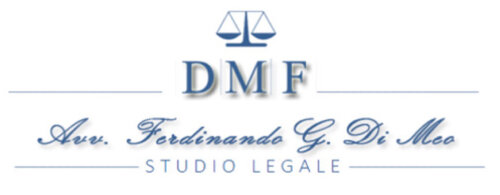Best Debt Capital Markets Lawyers in Avellino
Share your needs with us, get contacted by law firms.
Free. Takes 2 min.
List of the best lawyers in Avellino, Italy
About Debt Capital Markets Law in Avellino, Italy
Debt Capital Markets (DCM) refers to the segment of the financial market where entities such as corporates, banks, or government bodies raise funds through the issuance of debt securities like bonds or notes. In Avellino, a city within the Campania region of Italy, this area of law encompasses not only local transactions but also adherence to national Italian regulations and broader European Union frameworks. DCM law involves the structuring, negotiation, and execution of debt instruments tailored to meet funding needs, often in a regulated environment to protect investors and ensure market stability.
Why You May Need a Lawyer
Seeking legal advice in Debt Capital Markets is critical in several circumstances. Common situations include:
- Planning to issue corporate bonds or other debt instruments for business financing
- Navigating compliance requirements for public offerings or private placements
- Dealing with regulatory bodies such as CONSOB (Italy's financial securities regulator)
- Negotiating terms with financial institutions or institutional investors
- Managing restructuring of existing debt or refinancing arrangements
- Resolving disputes arising from debt issuance, transfer, or repayment
- Understanding tax implications linked to issuance or investment in debt instruments
A lawyer ensures that all legal obligations are met, documents are correctly drafted, transactions are compliant with local and EU laws, and clients’ interests are protected throughout the process.
Local Laws Overview
Debt Capital Markets in Avellino are governed by a combination of Italian national law, EU financial regulations, and specific local commercial customs. Key legislative frameworks include:
- Italian Civil Code - Outlines the general contractual and corporate rules relevant to issuing debt securities.
- Legislative Decree No. 58/1998 (Testo Unico della Finanza or TUF) - The main law regulating financial markets, including the trading of debt securities and protection of investors.
- CONSOB Regulations - Rules set by the Italian financial regulator that cover disclosure requirements, prospectus standards, and market conduct regulations.
- EU Directives - Such as MiFID II and the Prospectus Regulation which affect how debt instruments are marketed, sold, and disclosed, even at a local level like Avellino.
Locally, lawyers in Avellino may also assist with the understanding of any specific regional requirements or business customs, as well as relationships with local banks and institutions involved in DCM activity.
Frequently Asked Questions
What are Debt Capital Markets?
Debt Capital Markets are financial markets where organizations raise money by issuing debt securities like bonds, typically to finance operations or large projects.
Do I need a prospectus to issue bonds in Avellino?
In most cases, yes. Italian law and EU regulations generally require a prospectus approved by CONSOB when issuing bonds to the public, with certain exemptions for private placements or qualified investors.
Who regulates Debt Capital Markets transactions in Avellino?
The main regulator is CONSOB (Commissione Nazionale per le Società e la Borsa) at the national level. The Bank of Italy may also play a role for banking entities.
Can small and medium enterprises (SMEs) access DCM in Avellino?
Yes, SMEs can issue debt instruments, but may face more stringent disclosure and compliance processes, or choose private placements to limit regulatory burden.
What are the main risks with debt securities?
Risks include default risk by the issuer, interest rate risk, market price volatility, and regulatory risk due to changing laws or policies.
What legal documents are typically needed for a DCM transaction?
Key documents include a prospectus, offering memorandum, subscription agreements, trustee agreements, and listing documents (if traded on an exchange).
How are interest payments on bonds taxed in Italy?
Interest is generally subject to withholding tax, though specific rates and exemptions can depend on investor type and applicable tax treaties.
What is the role of a trustee or paying agent in debt issues?
A trustee or paying agent manages payment of interest and repayment of principal to bondholders, and ensures issuer compliance with bond terms.
What happens if an issuer defaults on its bonds?
Bondholders may have legal rights to claim repayment, possibly through enforcement or insolvency proceedings. Legal advice is crucial in this event.
Do I need a lawyer for investing in debt securities?
While not mandatory, legal advice is highly recommended for both issuers and investors to navigate regulatory requirements and protect interests.
Additional Resources
If you need more information or professional support in Debt Capital Markets, consider these resources:
- CONSOB (Commissione Nazionale per le Società e la Borsa) - National financial markets regulator, providing regulations and investor guides.
- Bank of Italy - Offers guidelines on banking regulations and debt instruments.
- Local Chamber of Commerce (Camera di Commercio di Avellino) - Supports local businesses and provides information on business financing.
- Professional Associations - The Italian Bar Association and specialized associations for financial lawyers.
Banks and law firms with experience in Debt Capital Markets often provide free seminars or consultation to inform local businesses and investors of their options.
Next Steps
If you require legal assistance in Debt Capital Markets in Avellino, consider the following steps:
- Identify your legal needs - such as bond issuance, compliance, or dispute resolution.
- Consult with a lawyer specializing in Debt Capital Markets - seek those familiar with both local Avellino customs and Italian national law.
- Prepare all relevant documents - business plans, financial statements, and previous legal agreements relating to your financing.
- Meet for an initial consultation to discuss risk, compliance, and potential transaction structures fit for your objectives.
- Work closely with your legal advisor through each stage - from planning and documentation to negotiation and regulatory filings.
Taking professional legal advice early will help you avoid costly mistakes, ensure compliance with complex laws, and secure the best possible outcome for your Debt Capital Markets activity in Avellino.
Lawzana helps you find the best lawyers and law firms in Avellino through a curated and pre-screened list of qualified legal professionals. Our platform offers rankings and detailed profiles of attorneys and law firms, allowing you to compare based on practice areas, including Debt Capital Markets, experience, and client feedback.
Each profile includes a description of the firm's areas of practice, client reviews, team members and partners, year of establishment, spoken languages, office locations, contact information, social media presence, and any published articles or resources. Most firms on our platform speak English and are experienced in both local and international legal matters.
Get a quote from top-rated law firms in Avellino, Italy — quickly, securely, and without unnecessary hassle.
Disclaimer:
The information provided on this page is for general informational purposes only and does not constitute legal advice. While we strive to ensure the accuracy and relevance of the content, legal information may change over time, and interpretations of the law can vary. You should always consult with a qualified legal professional for advice specific to your situation.
We disclaim all liability for actions taken or not taken based on the content of this page. If you believe any information is incorrect or outdated, please contact us, and we will review and update it where appropriate.









